This post may contain affiliate links. Please read my privacy policy.
Soft, chewy Chai Kueh (steamed vegetable dumplings) with a healthy jicama filling, this Malaysian snack is irresistibly delicious at any time of the day. Learn how to make this traditional delicacy with my easy step-by-step guide and pictures.
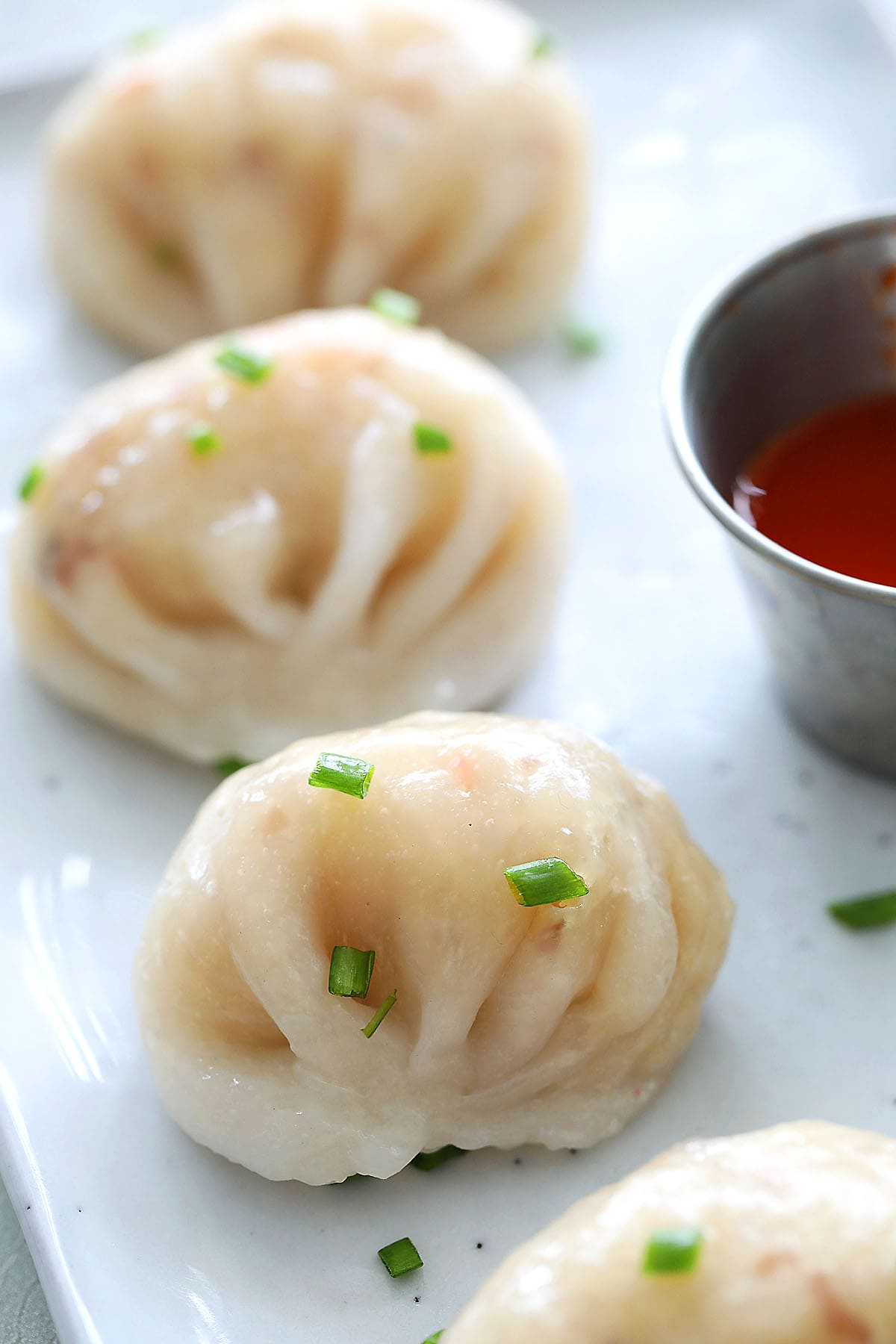
Steamed Vegetable Dumplings
Chai Kueh (sometimes spelled as Chai Kuih) is a traditional Chinese snack, especially popular among the Teochew and Hakka communities, particularly with the older generation in Malaysia and Singapore. There are several popular fillings for these steamed vegetable dumplings, but the most common ones are made with sengkuang (jicama or yam bean) and kuchai (Chinese leeks).
The key to making Chai Kueh lies in the skin, which must be soft, chewy, and have a translucent sheen that gives it a delicate, glossy crystal-like appearance. Achieving this texture requires skill and the right balance of ingredients. Once the skin is prepared, it is used to wrap the stir-fried jicama (yam bean), creating a contrast between the soft, translucent wrapper and the slightly crunchy, flavorful filling. This combination of textures is what makes Chai Kueh such an irresistible treat. I, for one, am a devoted lover of this delicacy.
If you love Malaysian kuih, please also check out other similar kuih recipes: Onde-onde (Ondeh-ondeh), kuih kosui, spiral curry puff, and yam cake (orh kuih).
Why I Love This Recipe
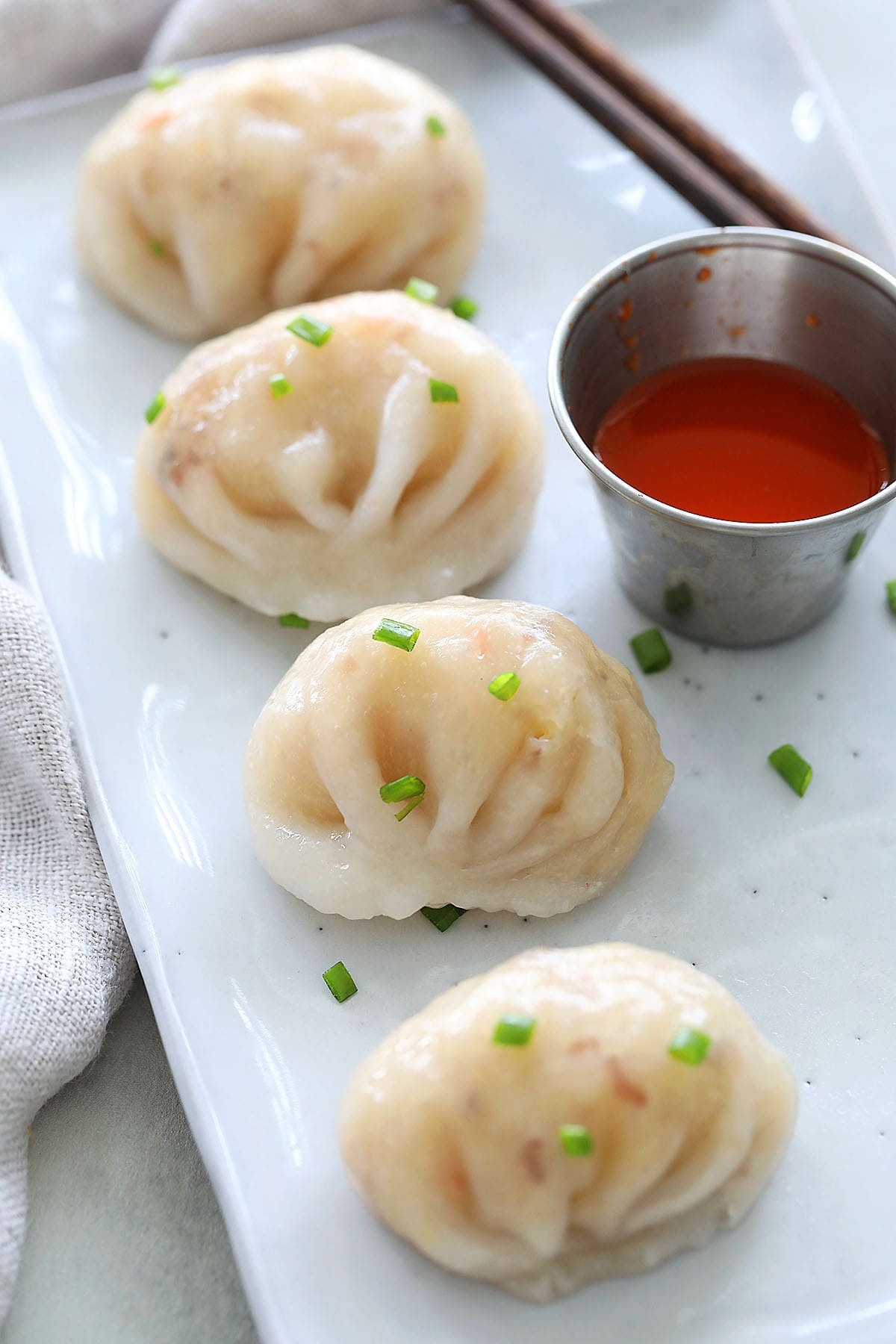
I enjoy this recipe for several reasons:
- Unique texture unlike others – its perfect balance of soft, chewy texture and a flavorful, slightly crunchy vegetable filling make it a popular kuih in Malaysia.
- Timeless culinary tradition. Chai Kueh is more than just a delicious snack; it is a cherished part of the Hakka and Teochew culinary heritage in Malaysia. Learn how to make this delicacy so we can help preserve the traditional flavors and techniques passed down through generations.
- Nostalgia. These vegetable steamed dumplings always reminds me of my late mother’s version. It’s an unforgettable comfort food, just like how she used to make it.
Ingredients You’ll Need
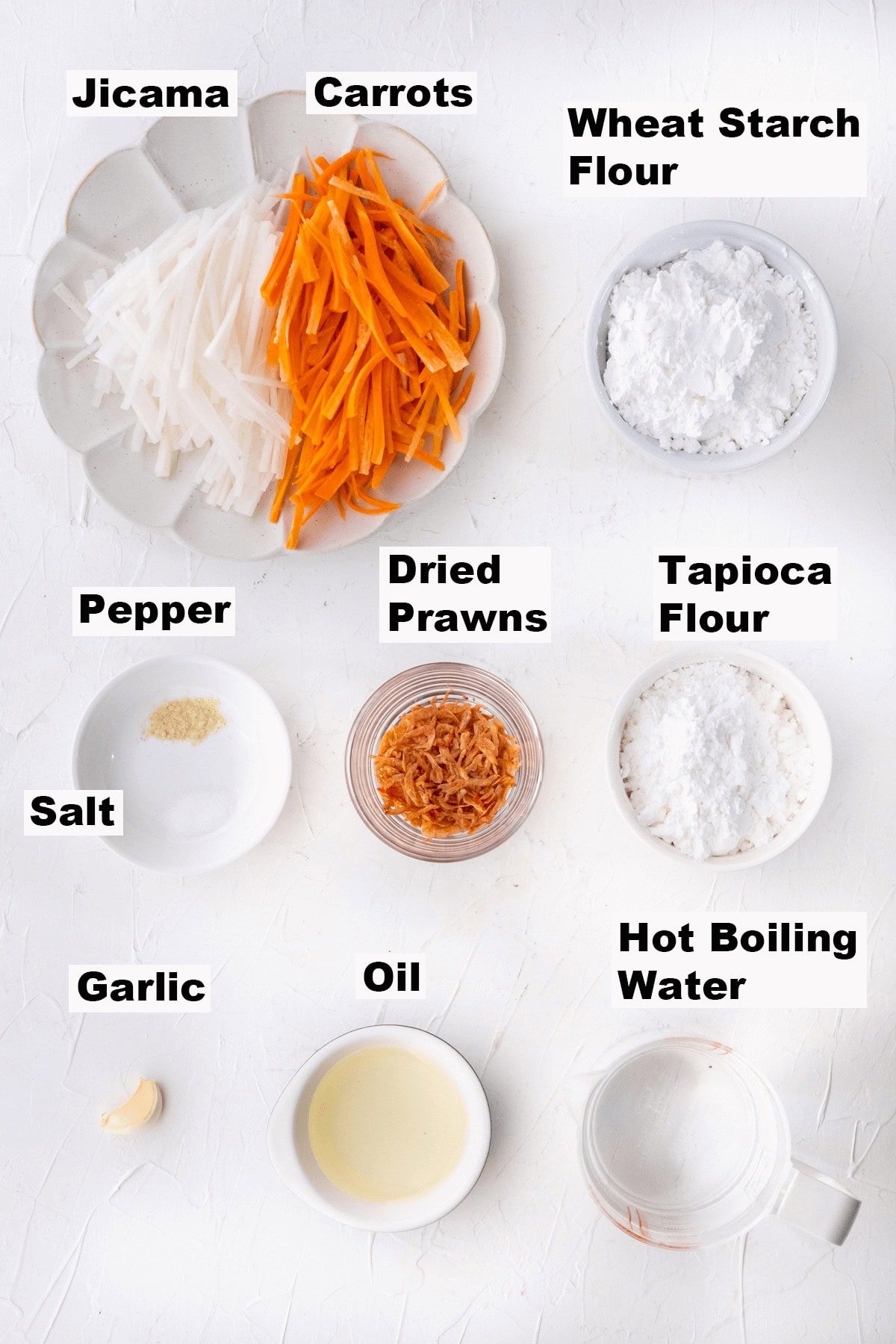
- Jicama (yam bean) – This root vegetable is commonly known as sengkuang in Malay language. It’s widely used in Malaysian cuisine, particularly in dishes like Nyonya Jiu Fu Char and Fried Popiah.
- Dried prawns (heh bee) – This is an essential ingredient in many Chinese-Malaysian recipes. It adds a rich umami flavor and depth to many dishes, including Sambal.
- Carrots
- Garlic
- Salt and ground white pepper
- Wheat starch flour (tung mein fun) and tapioca flour – Unfortunately, there’s no perfect substitute for wheat starch and tapioca flour since they’re what give Chai Kuih its chewy, translucent texture—other options like cornstarch or potato starch just won’t do the same job.
- Hot boiling water – The key to getting that perfect, slightly chewy, translucent texture. If you use warm or cold water, the dough can get too sticky or tough to handle, making it harder to work with and affecting how the final dish turns out.
- Oil
Please refer to the recipe card at the bottom of this post for full details on each ingredient.
How To Make Steamed Vegetable Dumplings (Chai Kueh)
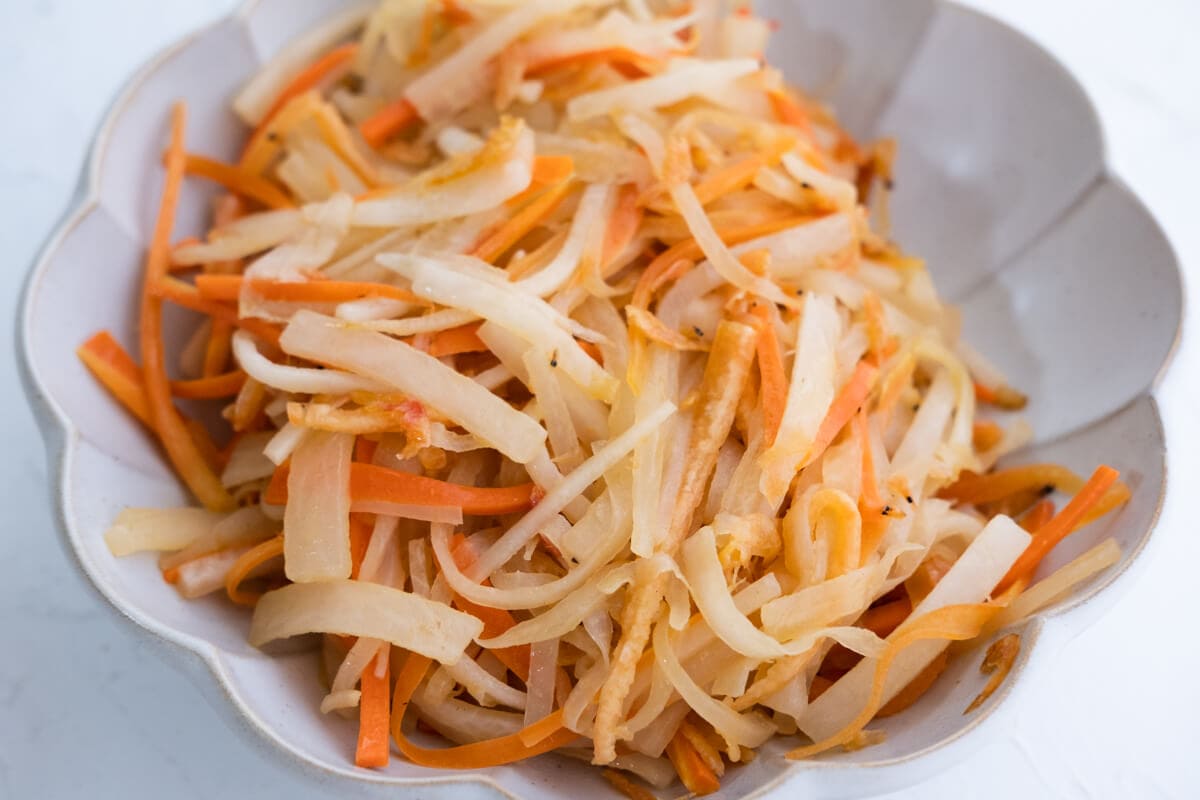
Step 1: Fillings. Wash and soak the dried prawns for 10–15 minutes, then chop them coarsely. Cut the yam bean (jicama) and carrots into long strips. Heat oil in a pan and sauté the garlic until fragrant. Add the dried prawns and fry until aromatic, then stir in the yam bean and carrots. Stir-fry for about 5 minutes, then let the mixture simmer until the vegetables are soft and cooked. Season with salt and white pepper to taste, and allow the mixture to cool completely.
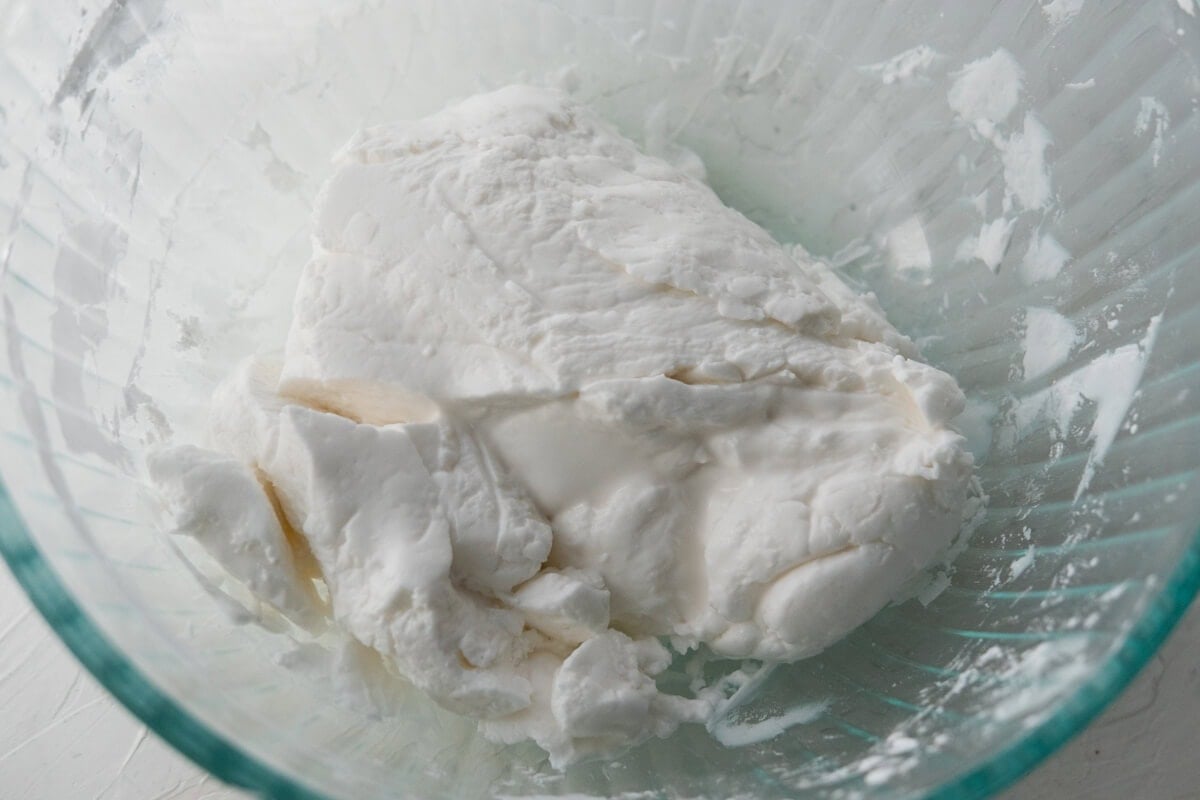
Step 2: Dumpling Wrapper. In a large mixing bowl, combine the wheat starch and tapioca flour. Pour in the boiling water and mix thoroughly with a long wooden spoon until a translucent dough forms.
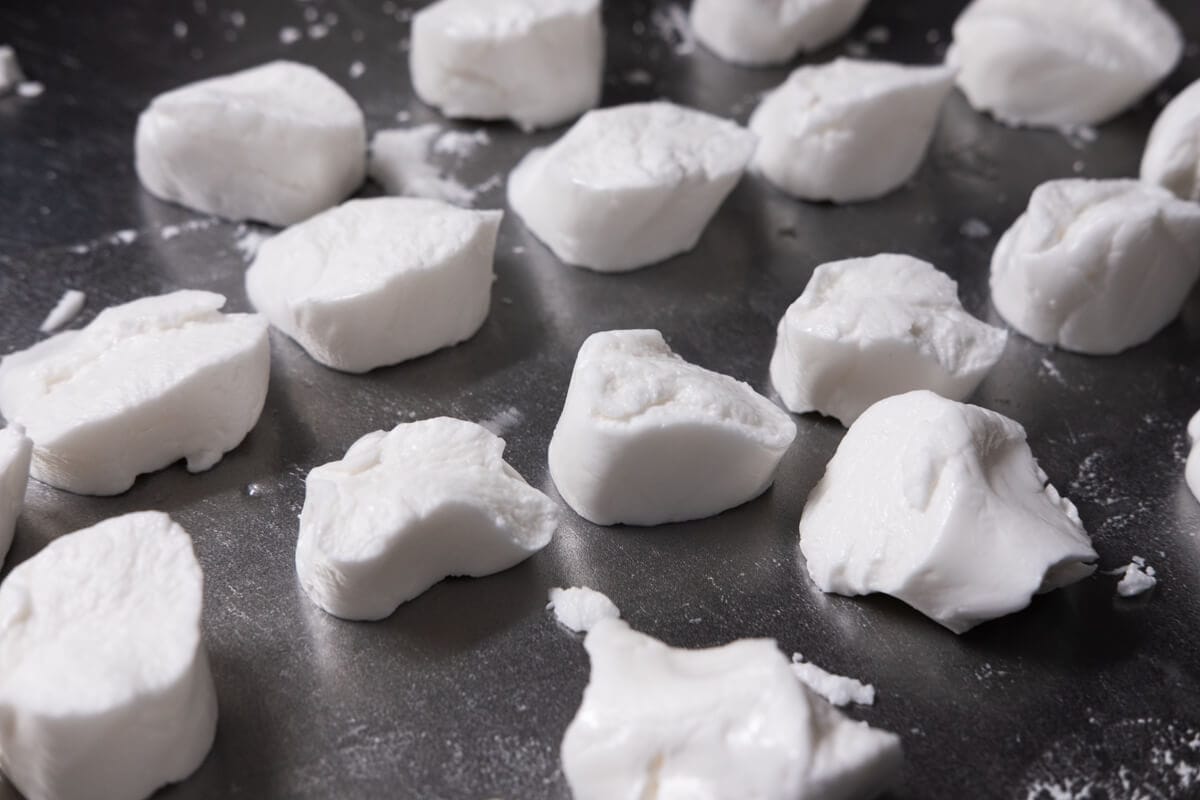
Step 3: Cover the dough and let it rest for 10 minutes. Gradually add the oil and knead until smooth. Roll the dough into a long, sausage-like shape, then divide it into approximately 30 equal pieces.
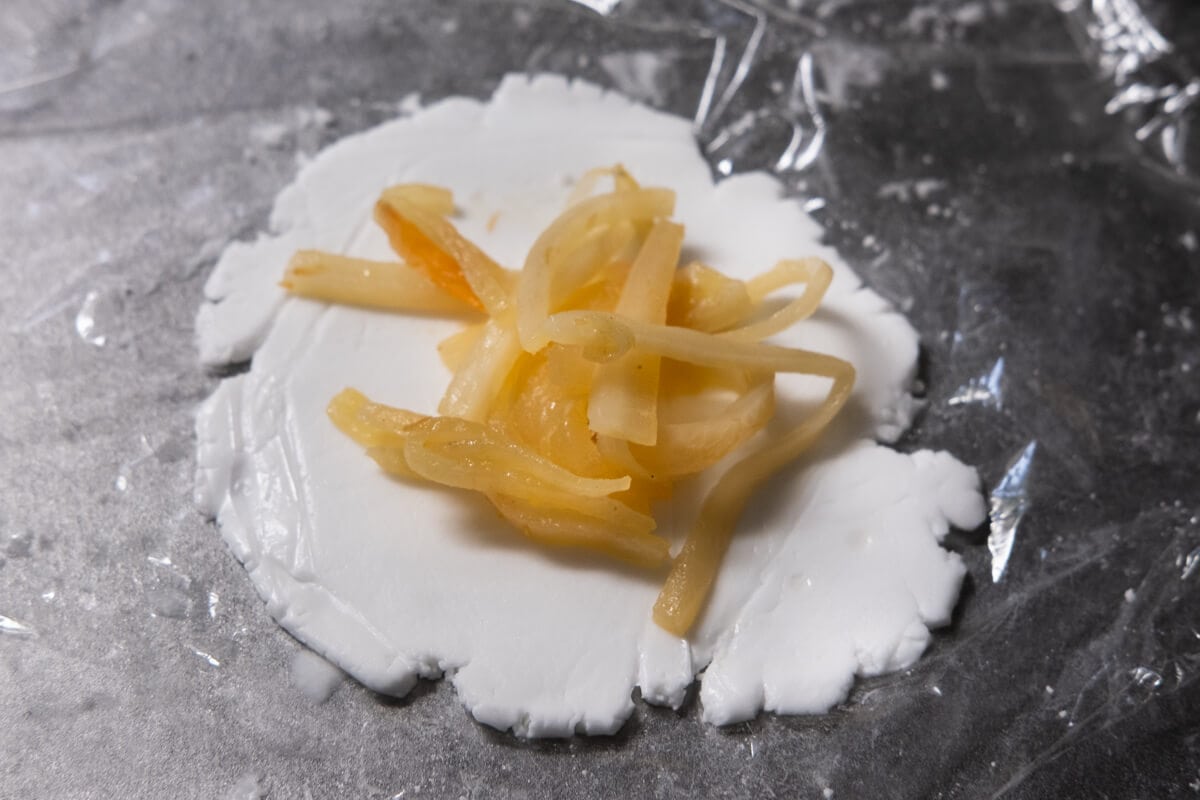
Step 4: Prepare the steamer and lightly oil the steaming tray or line it with parchment paper. Roll out the dough into circles about 7 cm in diameter. Place 1 tablespoon of filling in the center of each circle, then pleat the edges and wrap it tightly to seal.
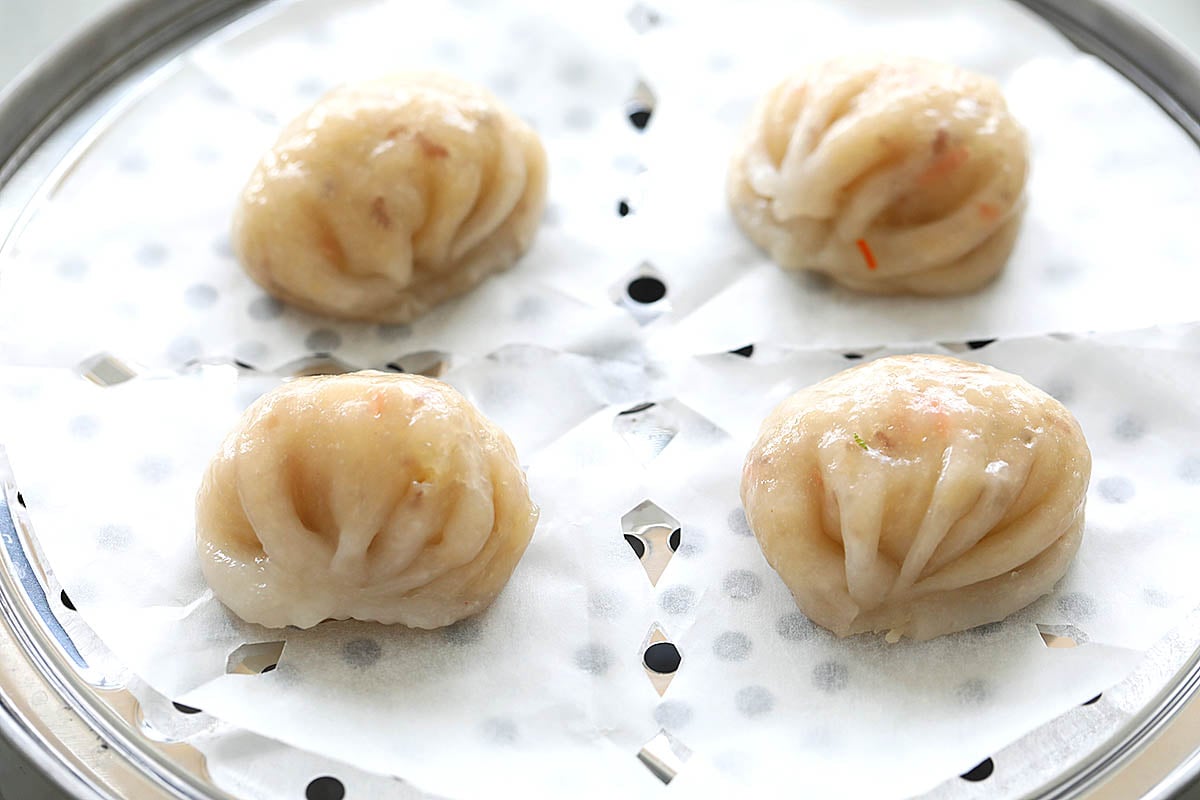
Step 5: Arrange the chai kueh on the steaming tray and brush them lightly with oil. Steam for 12 minutes or until the skin turns translucent.
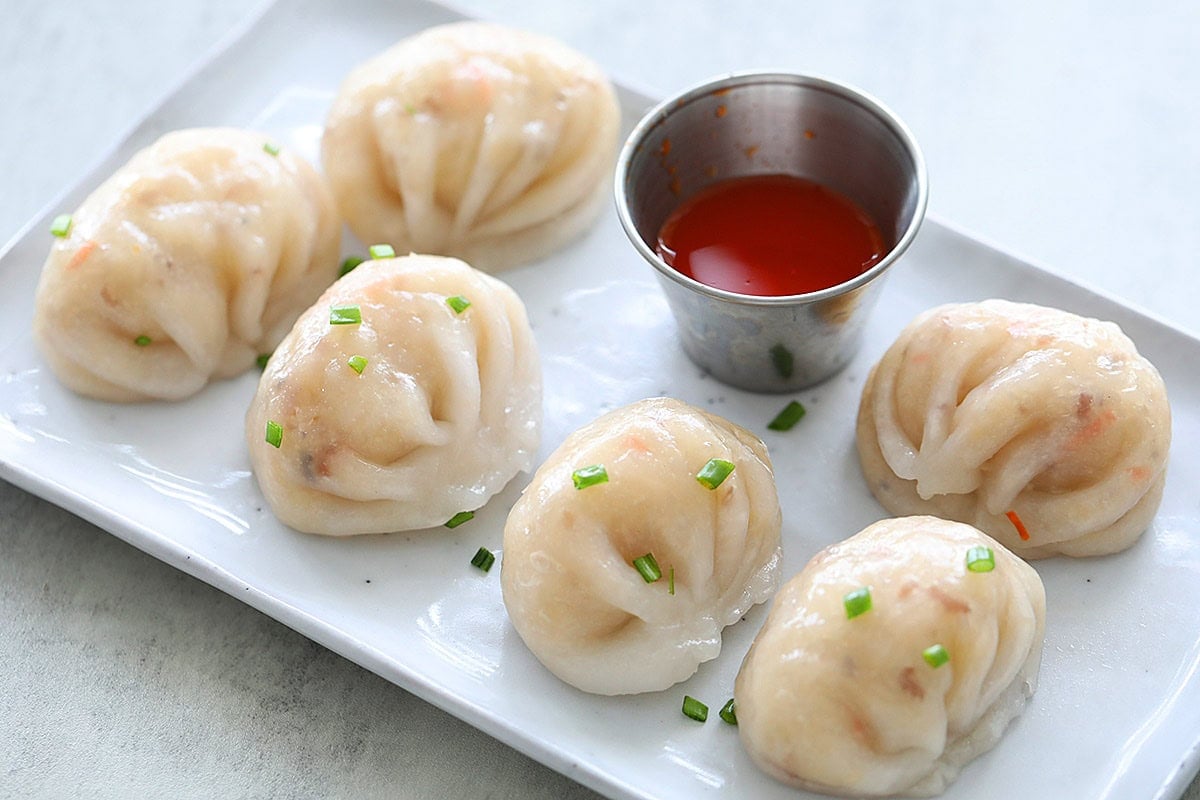
Step 6: Let the chai kueh cool in the steamer for 10 minutes. Remove from heat and serve with Malaysian chili sauce, such as Lingham’s Hot Sauce.
Pro Tips For Fail-Proof Chai Kueh
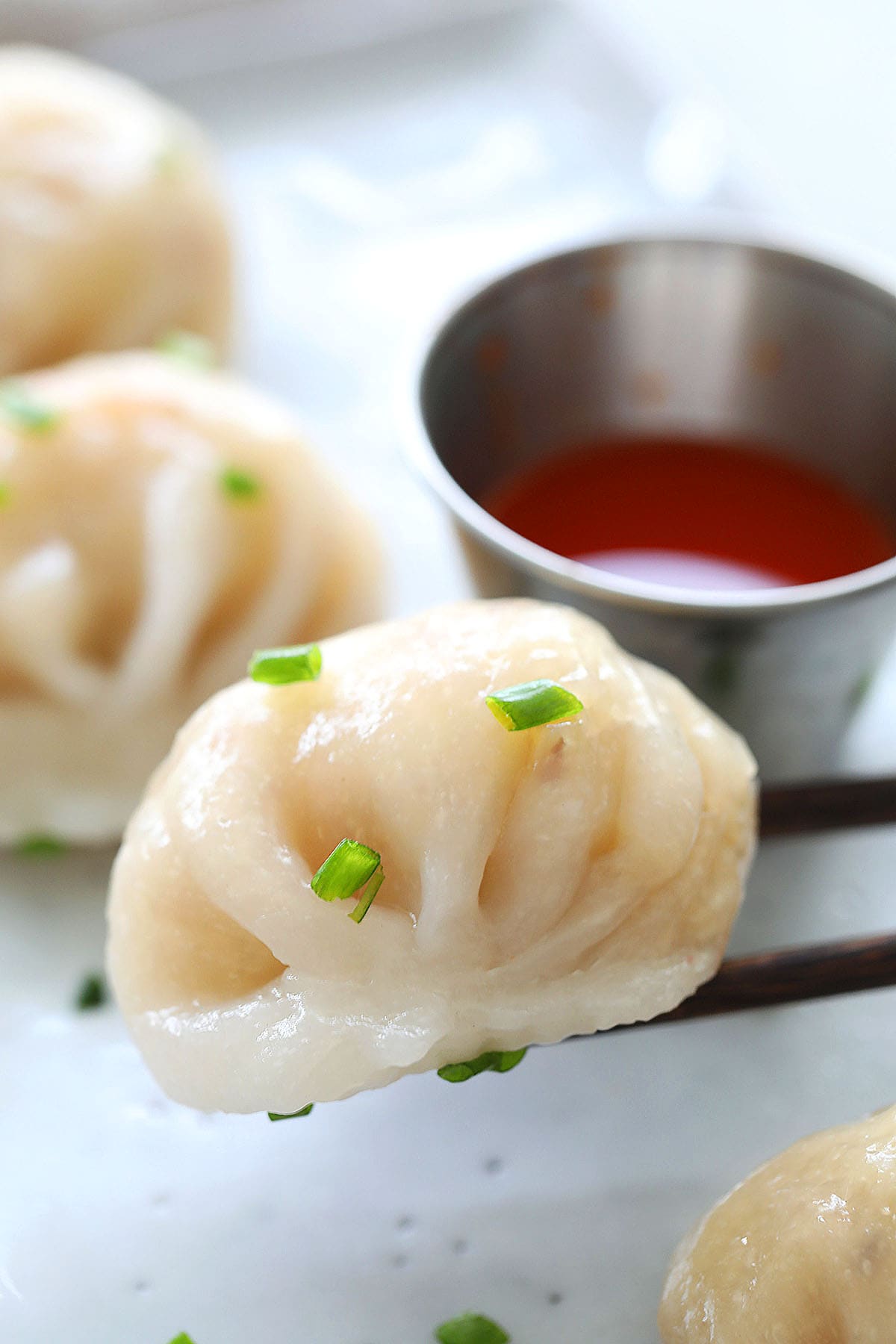
- Dry filling. To avoid a watery filling, ensure that the excess moisture is drained before wrapping.
- Don’t overfill: To avoid bursting during steaming, make sure to add just the right amount of filling. If you are a beginner, always start with a smaller filling.
- Prep the steamer. Lightly brush the steaming tray with oil or use parchment paper to prevent sticking and ensure easy removal of dumplings.
- Brushing oil. Brushing oil on the dumplings before steaming prevents sticking, improves texture, and adds that glorious sheen to the surface.
Frequently Asked Questions
Cracks usually happen if the dough gets too cold or dries out. Keep it covered with a damp cloth and work with it while it’s still warm. Warm dough is much easier to fold and pleat without breaking!
It’s probably because the water wasn’t hot enough when you made the dough. You need boiling water to make the dough gelatinize properly. Freshly boiled water is the key to that pretty, see-through skin!
If you don’t have a steamer, no worries! You can steam chai kuih using a pot with a steaming rack or even a metal colander. Just make sure the water doesn’t touch the dumplings as they steam.
Yes! Steam them in advance and reheat later by steaming for 3-5 minutes, or reheat in the microwave. Freeze the uncooked ones and steam them straight from the freezer—just add a couple of extra minutes to the cooking time.
Each dumpling is just 74 calories.
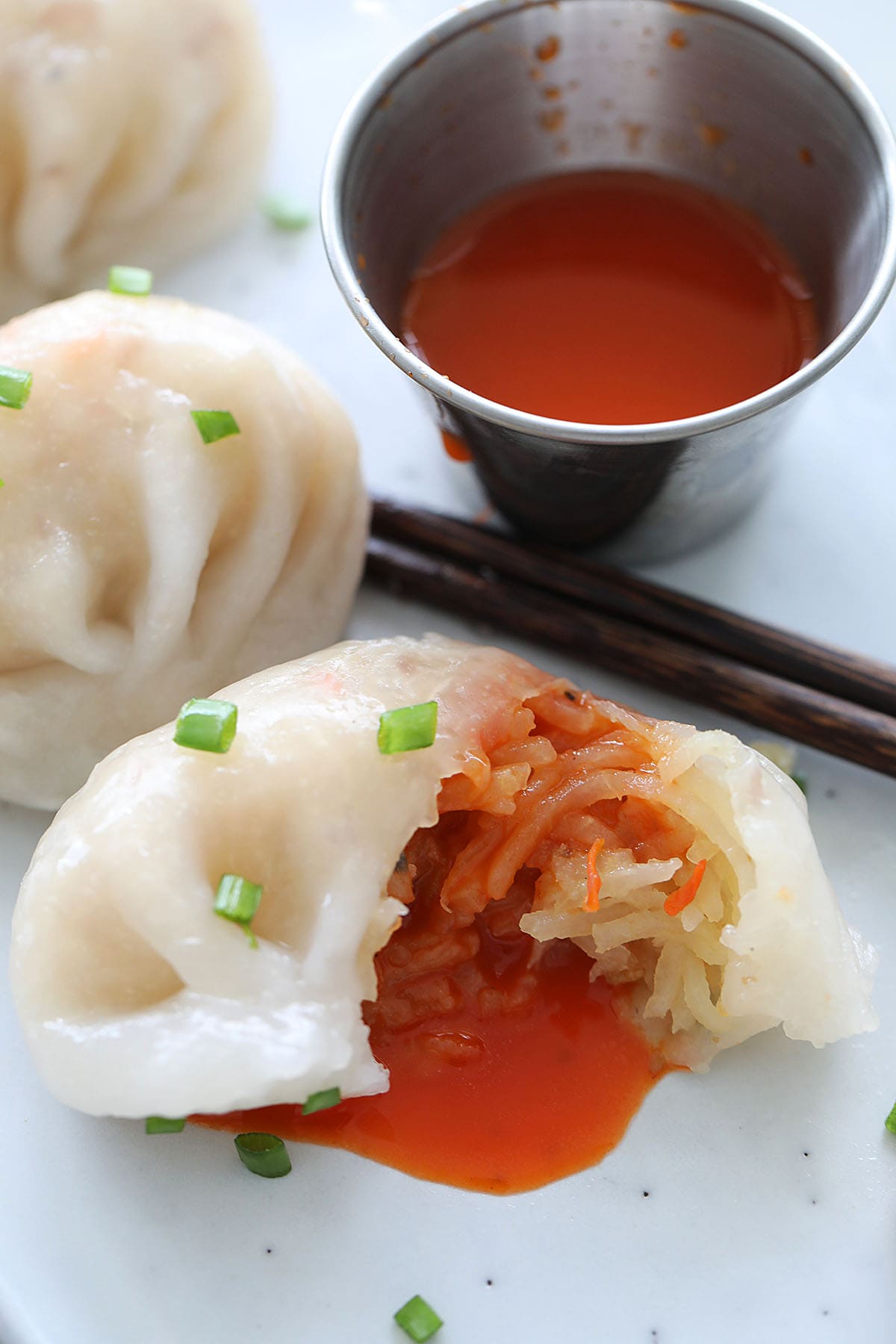
Other Malaysian Kuih Recipes
I hope you enjoy this post as much as I do. If you try my recipe, please leave a comment and consider giving it a 5-star rating. For more easy and delicious recipes, explore my Recipe Index, and stay updated by subscribing to my newsletter and following me on Facebook, Pinterest, and Instagram for new updates.
Other Recipes You Might Like
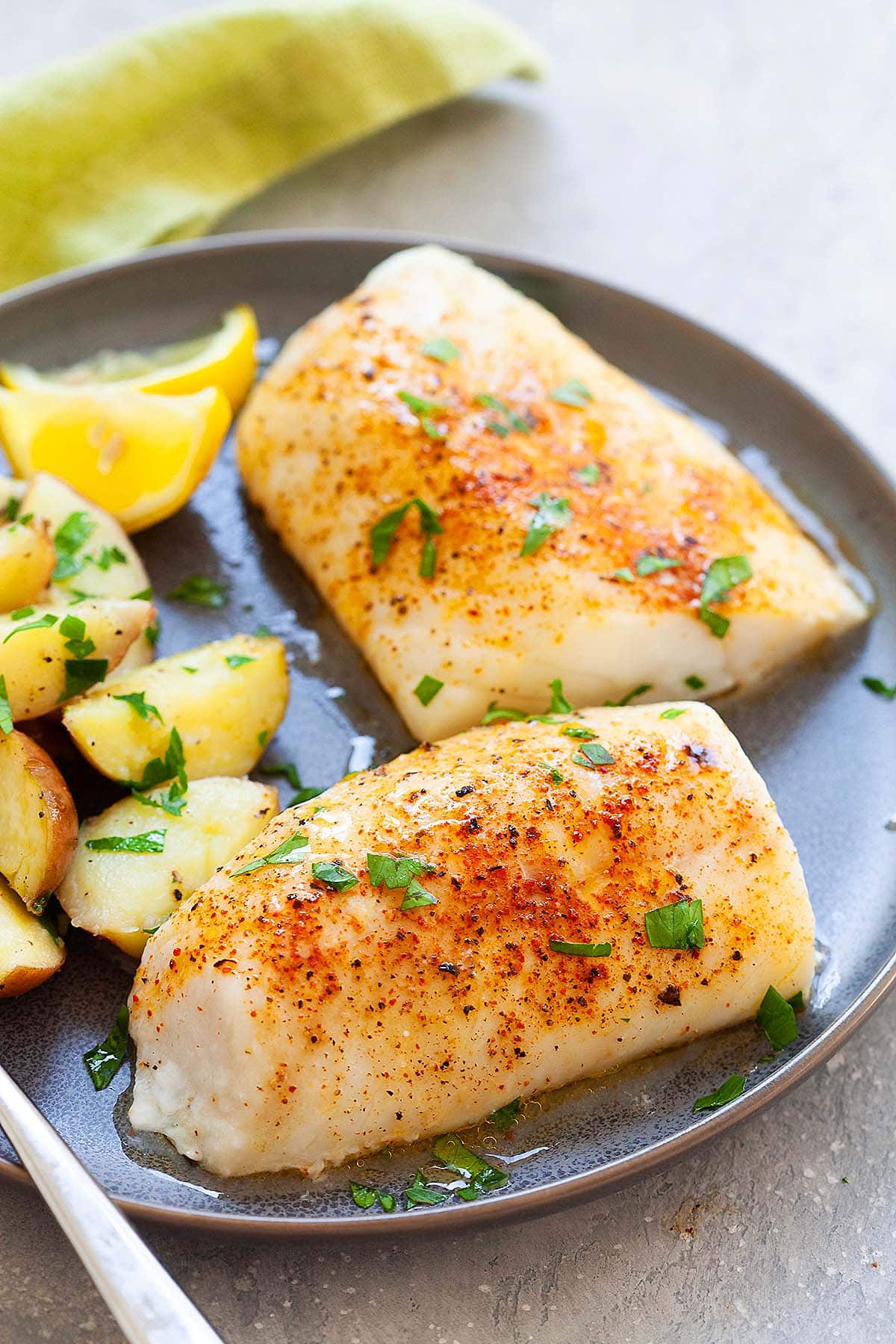
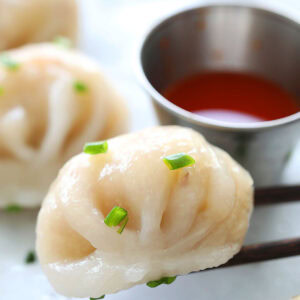
Chai Kueh Recipe
Ingredients
Filling:
- 3 tablespoons dried prawns
- 300 g jicama, yam bean, optional up to 400g
- 100 g carrots
- 3 tablespoons oil
- 3 cloves garlic, minced
- 1/2 teaspoon salt, more to taste
- 3 dashes pepper
Dumpling Wrapper:
- 165 g wheat starch flour, tung mein fun
- 85 g tapioca flour
- 420 g hot boiling water, 425 ml
- 5 tablespoons oil
Instructions
Filling:
- Wash and soak the dried prawns for 10–15 minutes, then chop them coarsely. Cut the yam bean (jicama) and carrots into long strips. Heat oil in a pan and sauté the garlic until fragrant. Add the dried prawns and fry until aromatic, then stir in the yam bean and carrots. Stir-fry for about 5 minutes, then let the mixture simmer until the vegetables are soft and cooked. Season with salt and white pepper to taste, and allow the mixture to cool completely.
Dumpling Wrapper:
- In a large mixing bowl, combine the wheat starch and tapioca flour. Pour in the boiling water and mix thoroughly with a long wooden spoon until a translucent dough forms.
- Cover the dough and let it rest for 10 minutes. Gradually add the oil and knead until smooth. Roll the dough into a long, sausage-like shape, then divide it into approximately 30 equal pieces.
Wrapping Chai Kueh:
- Prepare the steamer and either lightly oil the steaming tray or line it with parchment paper. Roll out the pastry into circles approximately 7 cm in diameter. Place 1 tablespoon of filling in the center of each circle, pleat the edges, and wrap them tightly to seal.
- Arrange the chai kueh on the steaming tray and brush them lightly with oil before steaming. Steam for 12 minutes or until the skin is translucent.
- Let the chai kueh cool in the steamer for 10 minutes. Remove from heat and serve with Malaysian chili sauce, such as Lingham's Hot Sauce.
Notes
- Dry filling. To avoid a watery filling, ensure that the excess moisture is drained before wrapping.
- Don’t overfill: To avoid bursting during steaming, make sure to add just the right amount of filling. If you are a beginner, always start with a smaller filling.
- Prep the steamer. Lightly brush the steaming tray with oil or use parchment paper to prevent sticking and ensure easy removal of dumplings.
- Brushing oil. Brushing oil on the dumplings before steaming prevents sticking, improves texture, and adds that glorious sheen to the surface.
Nutrition
Nutrition information is automatically calculated, so should only be used as an approximation.
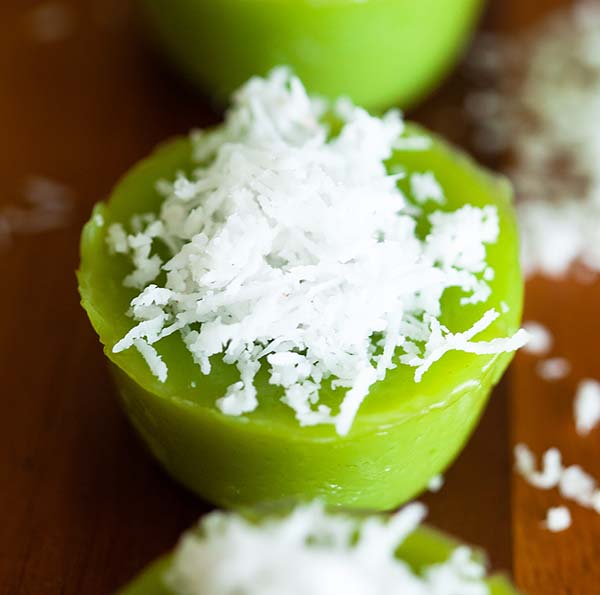
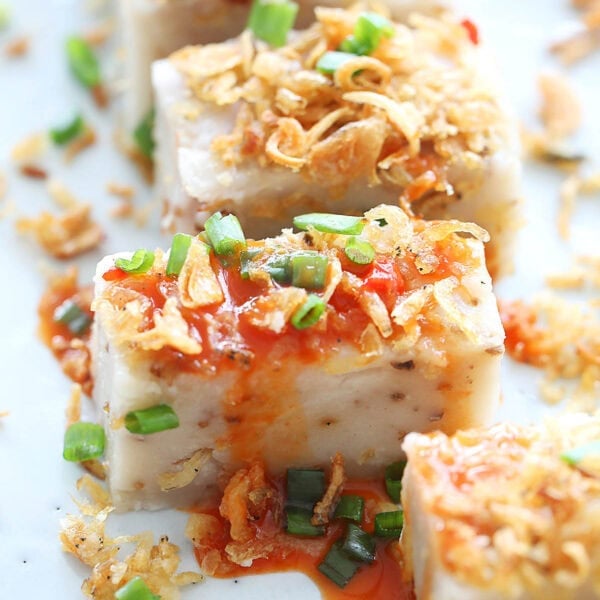
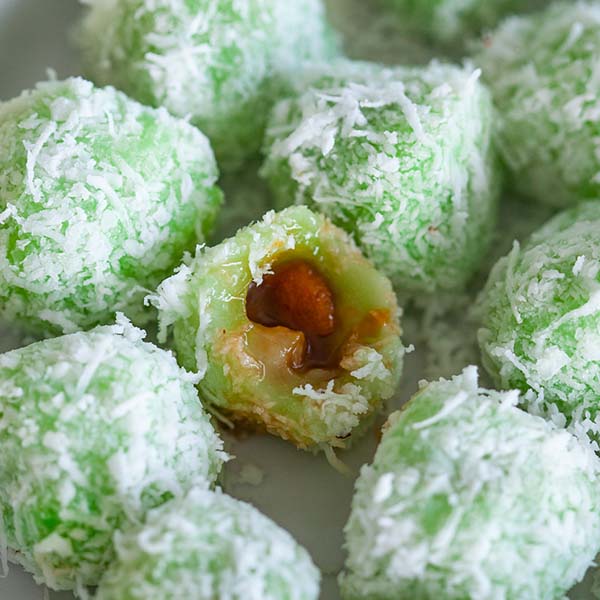
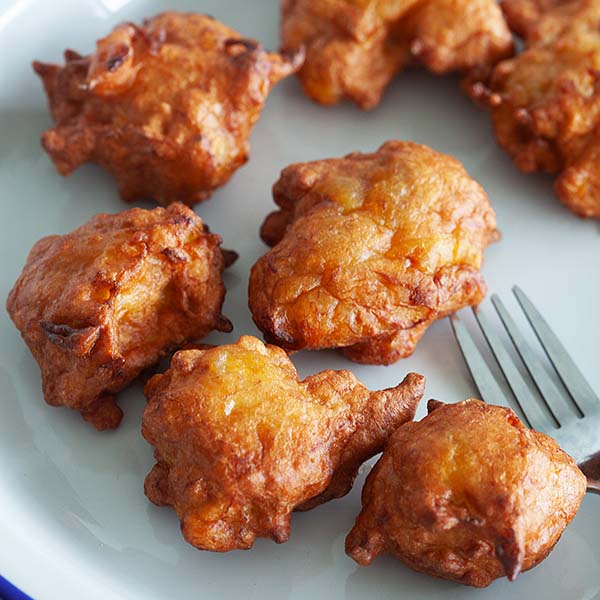






Do you really use 5 tablespoon oil for the dough? Seems a lot. I have seen other recipes using less oil or none at all.
Yes, a good chai kueh should be greasy on the surface.
Any advice on the chilli sauce to use with the chai Kueh?
Lingham hot sauce.
aaa
Hi,
Is wheat starch flour the same as corn starch flour?
I used corn starch flour with tapioca flour and dough is super sticky until failed.
Wasted
Wheat starch is NOT corn starch.
I made these tonight. I substituted white radish for yam beans and garlic chives for carrots. It turned out really well. Thank you for posting this recipe!
Awesome!
I made these tonight. I substituted white radish for yam beans and garlic chives for carrots. It turned out really well. Thank you for posting this recipe!
Made this today. Lovely texture and so delicious. Followed the instructions and found the dough very manageable. Wish I could post a photo here. Thank you for the recipe
Thanks for trying my recipe! :)